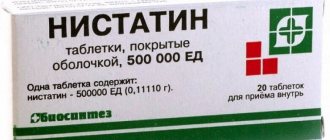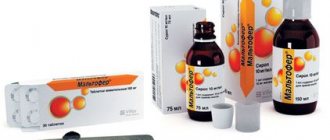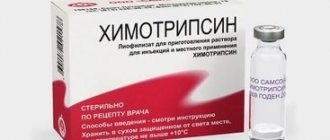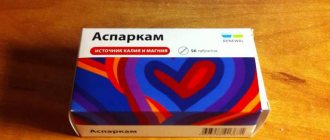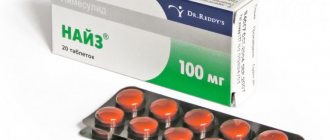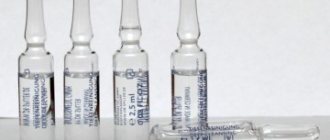- November 5, 2019
- obstetrics and gynecology
- Serdyukova Maria
In gynecology, drugs with a wide spectrum of action are used to combat fungal infections. They actively influence pathogenic microflora. Such drugs include vaginal suppositories “Iodoxide”. The main component of this remedy is povidone-iodine. This drug is a local antiseptic.
pharmachologic effect
Antiseptic effect
The drug exhibits antiseptic effectiveness when used locally intravaginally.
It is prescribed exclusively in gynecology.
Vaginal suppositories Iodoxide affect the amino groups of protein cells of harmful pathogens by blocking.
They are active in relation to:
- Pathogenic microorganisms;
- Conditionally pathogenic bacteria;
- Gribov;
- Protozoa;
- Viruses.
When the drug enters the vaginal environment, it gradually releases iodine, staining the surface of the mucous membrane. This color may remain for a certain time after the end of therapy until the substance is eliminated from the body.
Is it possible during pregnancy?
Iodine can penetrate into the placenta and into the milk of a nursing mother. After the 12th week of pregnancy, as well as during the period of feeding a newborn, the use of Iodoxide is not recommended. “Iodoxide” is used if the likelihood of risk for mother and baby is less than the possible result after treatment. Therapy is carried out under doctor's supervision.
Monitoring the functioning of the thyroid gland is mandatory in newborns whose mothers took Iodoxide during pregnancy.
Composition and release form
The drug Iodoxide is prepared in the form of intravaginal suppositories.
The active ingredient is povidone-iodine. Its concentration in one suppository is 200 mg
Polyethylene oxide-400 and polyethylene oxide-1500 are used as additional components.
The medicine is packaged in cardboard packs of 10 suppositories.
Iodoxide price, where to buy
The average price of Iodoxide candles is 250 rubles.
- Online pharmacies in RussiaRussia
ZdravCity
- Iodoxide suppositories vaginal.
200 mg 10 pcs. Nizhpharm OJSC RUB 281 order
Indications for use
Vaginal suppositories Iodoxide are used for acute or chronic genital infections in the form of:
- Mixed infections;
- Bacterial vaginosis;
- Thrush and other candida-based ailments;
- Illness due to antibiotic therapy or steroid use;
- Trichomoniasis as part of complex treatment.
Photo gallery of testimony:
Bacterial vaginosis
Thrush
Mixed infections
Unhealthy vaginal microflora
Trichomoniasis
In addition, the drug is a prophylactic before surgery or diagnosis of the female genital organs.
Useful video:
How to cure thrush during pregnancy
During pregnancy, yeast fungi begin to germinate from spores and multiply rapidly. This is facilitated by a decrease in immunity, hormonal changes, changes in vaginal acidity, etc. As a result, a large number of fungi cause an inflammatory process, which is accompanied by burning, itching and cheesy discharge. Unpleasant sensations intensify at night, after water procedures and intimacy. It is a bad indicator if a woman was treated with antibiotics before becoming pregnant, but it is even worse if she had to undergo antibiotic therapy during pregnancy.
- Treatment of thrush during pregnancy
- How to quickly and effectively cure thrush during pregnancy
- Drugs that are contraindicated for the treatment of thrush during pregnancy
- Recommendations to be followed
Treatment of thrush during pregnancy
The steps to properly treat thrush include:
- Mandatory diagnostics and accurate diagnosis.
- Determination of the presence of intestinal dysbiosis. Often, a disturbance in the composition of the microbiota occurs simultaneously in both the vagina and intestines. In this case, in parallel with the treatment of thrush, drink Hilak Forte or Linex on the recommendation of a doctor, usually for at least a month.
- Exclude sweet, flour, butter, salty, smoked and canned foods from the diet. If kefir fermented with kefir fungus is present in the diet, then exclude it as well. Buy fermented milk products that contain bifidobacteria and acidophilus.
- Almost all drugs for thrush (candidiasis) enter the blood of the expectant mother. Consequently, treatment of candidiasis during pregnancy should be carried out using local methods (cream, suppositories), and not general ones, and the duration and dose should be strictly prescribed by the doctor who monitors and cares for the pregnant woman.
- Traditional methods of treatment are considered auxiliary to drug therapy.
It is much more difficult for a pregnant woman to cure thrush due to a weakened immune system, and due to the fact that many dosage forms that can harm the unborn child cannot be used.
Treatment must be carried out by a doctor according to an individual regimen, which includes the use of systemic and local treatment drugs. It involves the use of oral drugs that act in the intestines, where the main source of infection is located. A certain dose penetrates the blood and all organs and tissues. Local treatment is carried out by using creams, ointments and suppositories that act superficially, so they rarely help to completely cure thrush.
How to quickly and effectively cure thrush during pregnancy
Safe treatment of thrush during pregnancy, is it possible? The doctor who will do the tests can answer the question on an individual basis. You can learn about the most commonly used medications from various sources, here are some of them:
- Pimafucin. An effective remedy for treating thrush during pregnancy. It is non-toxic and has no side effects, so it is often used by pregnant women and during lactation.
- Nystatin. Has a weak effect. It is used in the form of tablets and suppositories for topical use, which makes it less effective. But if the thrush is primary and in the initial stage, this medicine will come in very handy, and it will cure candidiasis and will not harm the fetus
- Borax in glycerin is absolutely safe and is indicated for both the child and the mother. Helps get rid of thrush and prevents further development.
- Zelenka - acts like borax in glycerin, can be used in the first trimester of pregnancy.
Drugs that are contraindicated for the treatment of thrush during pregnancy
List of medicines that are prohibited for the treatment of thrush:
- Diflucan, Luconazole are strictly prohibited.
- Levorin, Nizoral are contraindicated.
- Canesten, Clotrimazole are contraindicated in the first trimester of pregnancy. It is not advisable to use it in the future. In exceptional cases, a doctor may prescribe this drug in the last months of pregnancy on an individual basis.
- Betadine is contraindicated due to its high iodine content, which can harm the fetus (suppress the activity of the thyroid gland).
Contraindications
The use of intravaginal suppositories also has its limitations, relative or absolute.
| No. | Absolute contraindications | Relative contraindications |
| 1 | Intolerance to the components of the product | Second and third trimesters during pregnancy |
| 2 | Benign tumor of the thyroid gland in the form of an adenoma | Chronic renal failure |
| 3 | Newborn period | Lactation period |
| 4 | Condition of thyrotoxicosis | — |
| 5 | Dühring's disease | — |
| 6 | Concomitant use with radioactive iodine | — |
Side effects
The drug is often tolerated without problems. Possible violations:
- The occurrence of local manifestations - swelling, burning, rash, itching, redness of the skin or mucous membranes, hypersensitivity.
- Medicines based on iodine provoke an increase in its content in the blood. For people with normal functioning of the thyroid gland, this does not cause harm, but if there are problems with the endocrine system, there may be disruptions in the functioning of the body.
- Sometimes malfunctions of the kidneys occur, resulting in renal failure.
- Very rarely, an acute reaction develops: difficulty breathing, low blood pressure, anaphylaxis.
Return to contents
Instructions for use
The drug has some features of use.
| No. | Reason for use | Terms of use |
| 1 | How to use? | Exclusively deep intravaginally in a supine position. |
| 2 | Chronic/subacute vaginitis | 1 vaginal suppository in the evening for 2 weeks. |
| 3 | Acute vaginitis | 1 vaginal suppository per day for 2 weeks. |
Drugs for the treatment of thrush
Treatment regimens, choice of drug for thrush, their combinations, type of treatment (local or combined), duration of the course are determined exclusively by the doctor!
Currently, the choice of drugs for the treatment of thrush is quite extensive, and the choice of release forms for such drugs is varied. Information on their use is available. But it is worth remembering that you should not self-medicate for thrush to achieve the best result (with irrational therapy, the acute disease turns into a chronic form resistant to most drugs). The main groups of drugs that are used to treat thrush:
- antibiotics of the polyene group (Natamycin, Nystatin);
- triazole derivatives (Fluconazole);
- imidazoledioxalane derivatives (Livarol);
- imidazole derivative (Clotrimazole).
For acute thrush, it is possible to use local forms (vaginal tablets and suppositories, ointments, creams) of medications. While in chronic (long-term) or recurrent (often recurring) forms of the disease, the use of tablet forms of the drug together with local treatment is inevitable and necessary.
The most common forms of drug release for the treatment of thrush are tablets and suppositories. You can find out which one is better to use by reading the following articles:
- Tablets for the treatment of thrush
- Candles against thrush
- Ointment for thrush
Drugs used in the treatment of thrush:
Analogues substitutes
Complete substitutes for Iodoxide vaginal suppositories are:
- Betadine is available in solution, ointment, and vaginal suppositories. (Hungary).
- Povidone-Iodine is prepared in the form of solutions for external use with a concentration of povidone-iodine of 10% and 7.5%, concentrate for solution, ointment, suppositories. (Serbia).
- Iodosept is produced in the form of a solution for external use and a vaginal suppository. (France).
- Iodovidone is produced in the form of suppositories for intravaginal use. (Russia).
Photos of substitutes:
Betadine
Povidone-Iodine
Iodosept
Reviews of Iodoxide
Positive reviews about Iodoxide suppositories regarding their effectiveness in treating various vaginitis prevail over negative impressions about the effectiveness of this drug. For many patients, these suppositories really helped them get rid of their existing painful conditions and, importantly, for a very small fee.
Among the negative aspects of such therapy, dryness and burning in the vagina , as well as the formation of brown discharge, .
